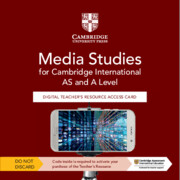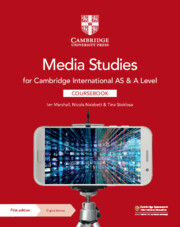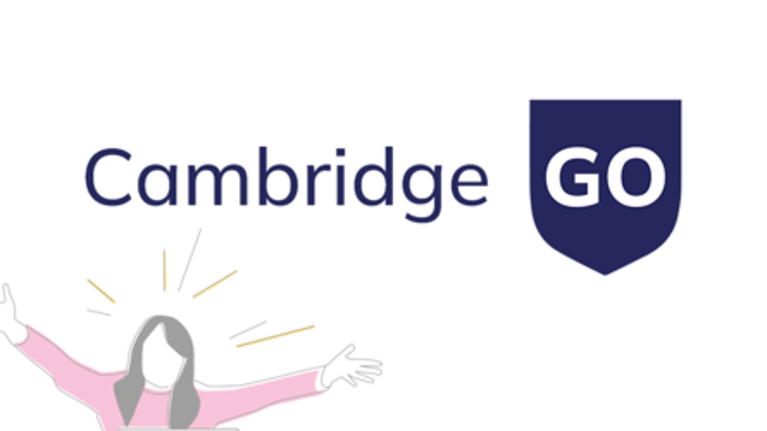Cambridge International AS & A Level Media Studies Digital Teacher's Resource
Overview
This digital teacher’s resource is designed to help you use the series in the most effective way, bridging the gap between teaching theory and practice. It helps you support your learners, plan great lessons and teach to the syllabus. Access comprehensive support, with a particular focus on skills development, project-based learning and differentiation. Unpack the Cambridge teaching approach with clear teaching notes and worksheets to guide each step of the journey through the course. Access your digital resource via Cambridge GO, the home for your Cambridge digital content.
Features
- Guidance through the activities enables you to feel confident in your teaching approach
- Specific support on skills development, project-based learning and differentiation helps you to build a thorough understanding of the pedagogy of the course
- Robust teaching notes, plus worksheets that facilitate differentiation, enable you to support your students wherever they are in their learning
- Downloadable language worksheets save you time, and enable students to unlock subject-specific vocabulary
- Your digital teacher’s resource gives you access to everything you need – choose from editable Word files or PDFs to make lesson planning simple
- Download supporting files for each unit or lesson directly from the resource so you’ll never have to worry about internet connection
- Access all of your Cambridge GO resources anytime, anywhere and create your own collection in ‘My Resources’.
Contents
- Unit 1 Introduction to Media:
- 1.1 What is Media?
- 1.2 Media and your life
- Unit 2 Media Language - Micro elements:
- 2.1 Semiotics
- 2.2 Shots, Angles, Movement, composition
- 2.3 Sound
- 2.4 Mise-en-scène
- 2.5 Editing
- Unit 3 Media Language - Macro elements:
- 3.1 Genre
- 3.2 Narrative
- 3.3 Representation
- Unit 4 Textual Analysis:
- 4.1 What is media text analysis?
- 4.2 Reading media texts
- 4.3 Writing about media texts
- Unit 5 Media contexts:
- 5.1 Media forms and platforms
- 5.2 Media institutions
- 5.3 Media audiences
- 5.4 Developing case studies
- 5.5 Using case studies
- Unit 6 Media Production - AS and A level portfolios:
- 6.1 Preparing for production
- 6.2 Researching a production
- 6.3 Planning a production
- 6.4 Developing skills: film/video
- 6.5 Developing skills: print
- 6.6 Developing skills: social media
- 6.7 Reflecting on a production
- Unit7 Media Debates:
- 7.1 Regulation
- 7.2 Postmodernism
- 7.3 Power and the media
- Unit 8 Media Ecology:
- 8.1 What is media ecology
- 8.2 Evolving media environments
- 8.3 Developing case studies for media ecology
- Glossary
- Index.
Brighter Thinking Blog
Keep up to date with the latest classroom tips and educational trends from our brighter thinkers.
Visit the blogCatalogues and Ordering
Looking for something in particular or just browsing? View our catalogues to see our full range of print and digital books.
View and downloadAdvice on useful tools
Advice on useful tools, activities and timetabling from teachers experiencing school closures.
Cambridge GO
All our supporting resources have now moved to Cambridge GO – the new home for your Cambridge digital content.
Listen to our podcast
Listen to our podcast to discover teaching inspiration & advice from leading educational thinkers.





